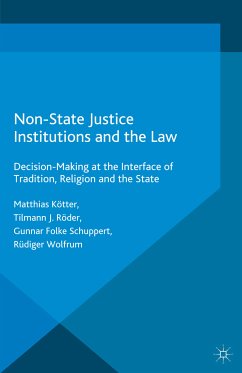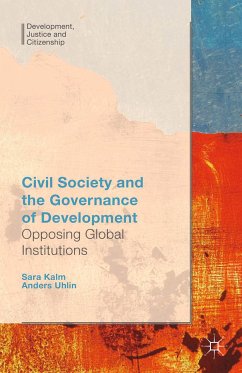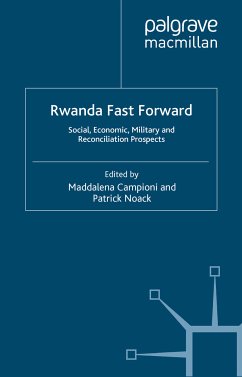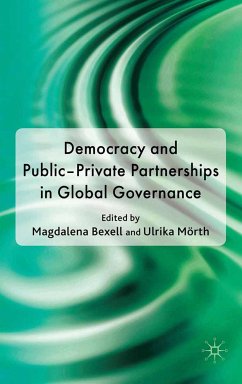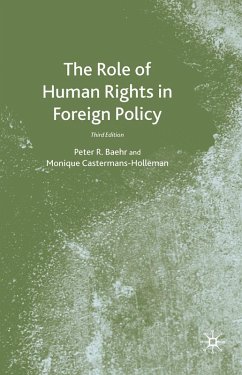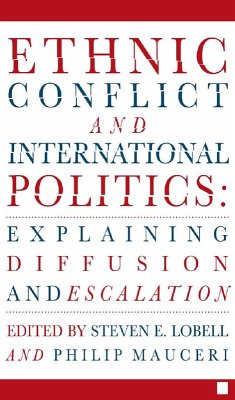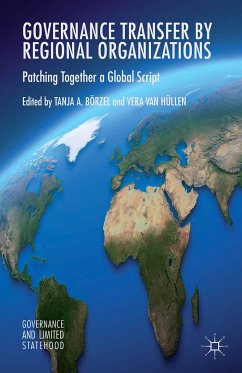
Governance Transfer by Regional Organizations (eBook, PDF)
Patching Together a Global Script
Redaktion: Hüllen, V. van

PAYBACK Punkte
20 °P sammeln!
This volume explores the conditions under which regional organizations engage in governance transfer in and to areas of limited statehood. The authors argue that a global script of governance transfer by regional organizations is emerging, where regional and national actors are adapting governance standards and instruments to their local context.
Dieser Download kann aus rechtlichen Gründen nur mit Rechnungsadresse in A, B, BG, CY, CZ, D, DK, EW, E, FIN, F, GR, HR, H, IRL, I, LT, L, LR, M, NL, PL, P, R, S, SLO, SK ausgeliefert werden.



